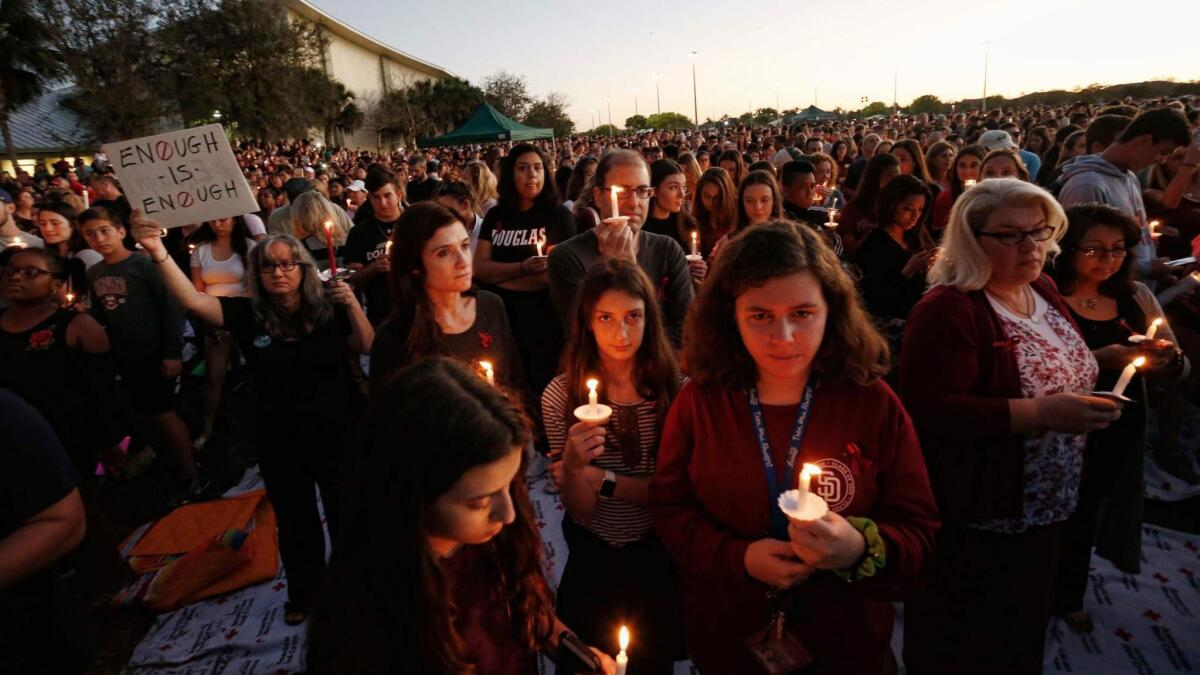Suicides highlight the toll of school shootings and the role of ‘complicated grief’

After three suicides in 10 days involving people directly affected by school shootings, there’s renewed interest in a condition that psychologists call “complicated grief.”
Long after a mass-casualty event, roughly 10% of people experience the enduring or chronic depression and distress that are hallmarks of the condition.
Scientists are still trying to understand whether, or by how much, the circumstances of a loved one’s death raise the risk of complicated grief. But “we know from research that when there’s a violent death, it’s just that much harder to get over it,” said Columbia University psychologist George Bonanno.
“You have a combination of grief and depression and often trauma symptoms because the survivor can replay in their mind what their loved one went through,” said Bonanno, who leads the Loss, Trauma and Emotion Lab at Columbia’s Teachers College. “Survivors are more likely to be tormented by these images that don’t go away. That’s really tough stuff.”
Complicated grief may have played a role in the recent spate of suicides involving the father of a first-grader killed at Sandy Hook Elementary School in Newton, Conn., and two students who survived the massacre at Marjory Stoneman Douglas High School in Parkland, Fla.
In a 2007 study of 700 people who lost a loved one in the terrorist attacks of 9/11, researchers found that more than 40% went on to have full-scale complicated grief, and fully one-third reported suicidal ideation. The results were published in the Journal of Traumatic Stress.
Many factors may drive a bereaved person to act on suicidal thoughts, said study leader Yuval Neria, an expert in post-traumatic stress disorder at Columbia University Medical Center. The most common ones include loneliness, the perception that one is a burden to others, and fear of death. Genetics may play a role too.
For a very small minority of people traumatized by a mass-casualty event, the very public nature of the disaster can reduce isolation and rally emotional support. It may even bring victims a sense of meaning and purpose.
Researchers discovered this by studying women who attended Virginia Tech, where 32 people were murdered by a single gunman in the deadliest school shooting in U.S. history.
The researchers took advantage of anxiety and depression surveys administered before the 2007 mass shooting, then followed up with students for a year after the event. They found that 13.2% of the students saw their anxiety improve after the shooting, and 7.4% experienced substantially fewer depressive symptoms, according to a 2015 report in the journal Clinical Psychological Science.
“Mass trauma events like this tend to stitch people together. These people appeared to have been drawn into the fold and showed marked improvements,” said study coauthor Anthony Mancini, head of the Trauma, Social Processes, and Resilience Lab at Pace University. “These kinds of events impel social interaction, encourage social behavior, and create a common ground for social action. They do a lot.”
Indeed, trauma experts have names for this effect, which has been seen in military personnel who survive terrible casualties. Some call it a “city of comrades.” Others refer to a “post-disaster utopia” or a “paradise built in hell.”
For those who struggle with protracted grief reactions to mass shootings, Bonanno cautioned that both anniversaries and new shooting incidents can reactivate a person’s feelings of despondency.
For students and parents who sought solace in political activism, the recent mass shooting in New Zealand may have elicited an especially complex response, he added. Still reeling from loss and trauma — and struggling to find redemption in political reform — Newtown parents or Parkland students may have found that New Zealand’s decisive actions after 49 people were killed only deepened their own sense of discouragement.
“New Zealand immediately enacted a weapons ban, and the possibility did occur to me that there’s a frustration that nothing changes in our country,” Bonanno said.
MORE IN SCIENCE







